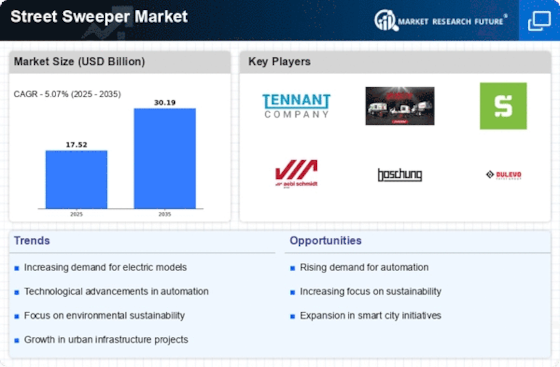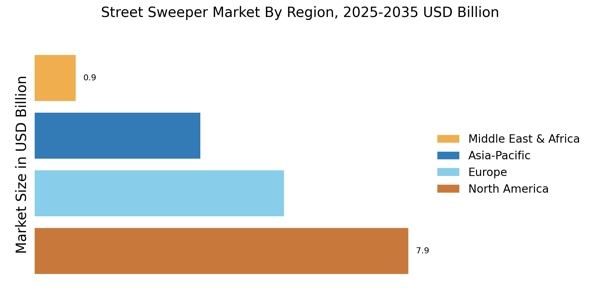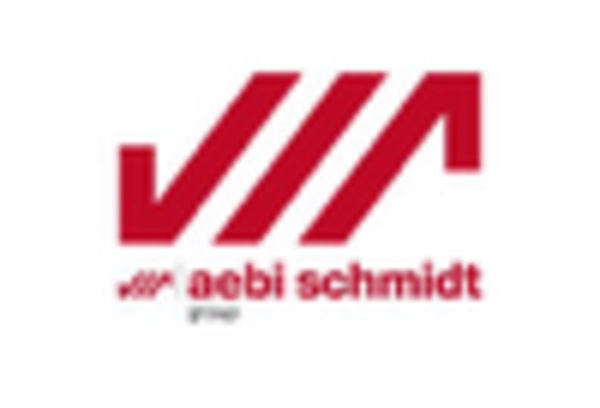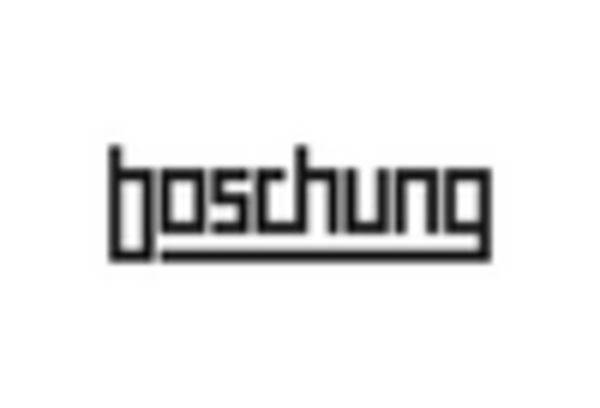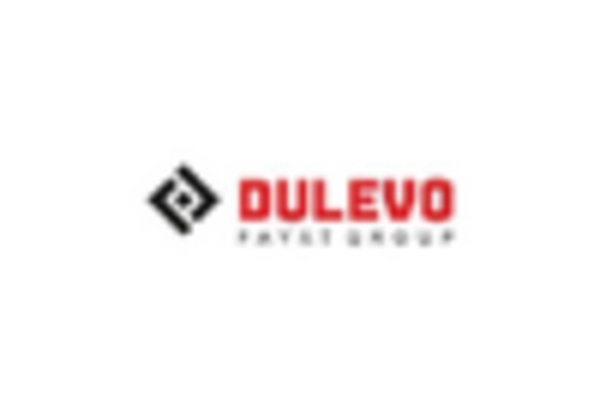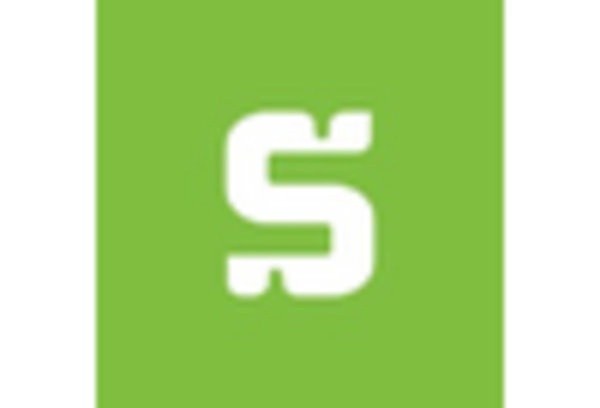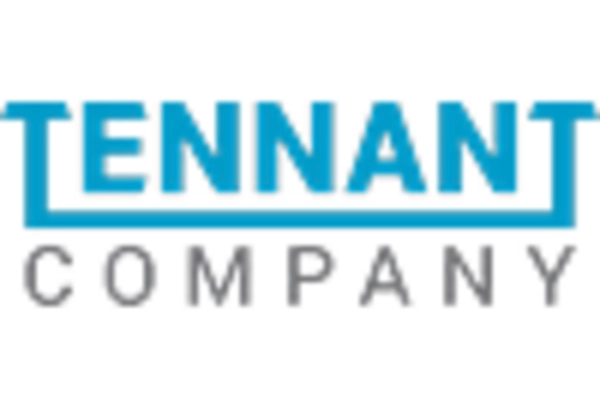The Street Sweeper Market is currently characterized by a dynamic competitive landscape, driven by increasing urbanization, environmental regulations, and a growing emphasis on sustainability. Key players such as Tennant Company (US), Elgin Street Sweepers (US), and Aebi Schmidt (CH) are strategically positioning themselves through innovation and technological advancements. Tennant Company (US) focuses on developing eco-friendly cleaning solutions, while Elgin Street Sweepers (US) emphasizes enhancing operational efficiency through advanced sweeping technologies. Aebi Schmidt (CH) is expanding its product portfolio to include electric and hybrid models, reflecting a broader industry trend towards sustainable practices. Collectively, these strategies not only enhance their market presence but also shape the competitive environment by pushing for higher standards in performance and environmental responsibility. In terms of business tactics, companies are increasingly localizing manufacturing to reduce costs and improve supply chain efficiency. The market structure appears moderately fragmented, with several players vying for market share, yet dominated by a few key firms that influence pricing and innovation. This competitive structure allows for a diverse range of products and services, catering to various customer needs while fostering a healthy level of competition that drives continuous improvement. In August 2025, Tennant Company (US) announced the launch of its new line of electric street sweepers, which are designed to reduce carbon emissions and operational costs. This strategic move not only aligns with global sustainability goals but also positions Tennant as a leader in the transition towards greener technologies in the street cleaning sector. The introduction of these electric models is likely to attract environmentally conscious municipalities and organizations, thereby expanding their customer base. In September 2025, Elgin Street Sweepers (US) unveiled a partnership with a leading technology firm to integrate AI-driven analytics into their street sweeping operations. This collaboration aims to optimize route planning and enhance the efficiency of their sweeping machines. By leveraging AI, Elgin is poised to improve service delivery and reduce operational costs, which could provide a competitive edge in a market that increasingly values data-driven decision-making. In July 2025, Aebi Schmidt (CH) expanded its operations into the Asia-Pacific region, establishing a manufacturing facility in India. This strategic expansion is indicative of the company's commitment to tapping into emerging markets and catering to the growing demand for street cleaning solutions in urbanizing regions. By localizing production, Aebi Schmidt can better serve its customers while minimizing logistics costs, thus enhancing its competitive positioning. As of October 2025, the Street Sweeper Market is witnessing significant trends such as digitalization, sustainability, and the integration of artificial intelligence. These trends are reshaping the competitive landscape, with strategic alliances becoming increasingly important for innovation and market penetration. The shift from price-based competition to a focus on technological advancement and supply chain reliability is evident, suggesting that companies that prioritize innovation and sustainability will likely emerge as leaders in this evolving market.
.png)

